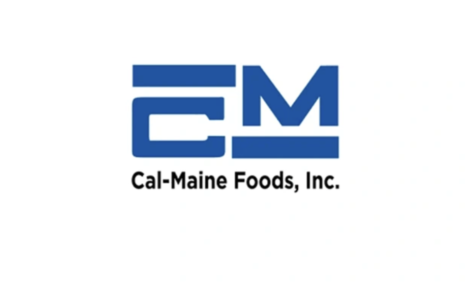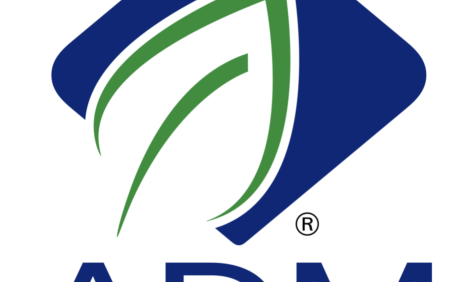



BBFAW update: Global food producers lead animal welfare efforts in 2020
The Business Benchmark on Farm Animal Welfare (BBFAW), a globally recognised investor framework for assessing companies' performance on farm animal welfare, has released its annual report for 2020.The ninth annual Business Benchmark on Farm Animal Welfare (BBFAW) was launched today revealing that for the first time in its history, food Producers & Manufacturers are now the highest scoring sub-sector on farm animal welfare. They achieved an overall average score of 38%, up from 35% in 2019, compared to scores of 36% for Retailers & Wholesalers, and 31% for Restaurants & Bars.
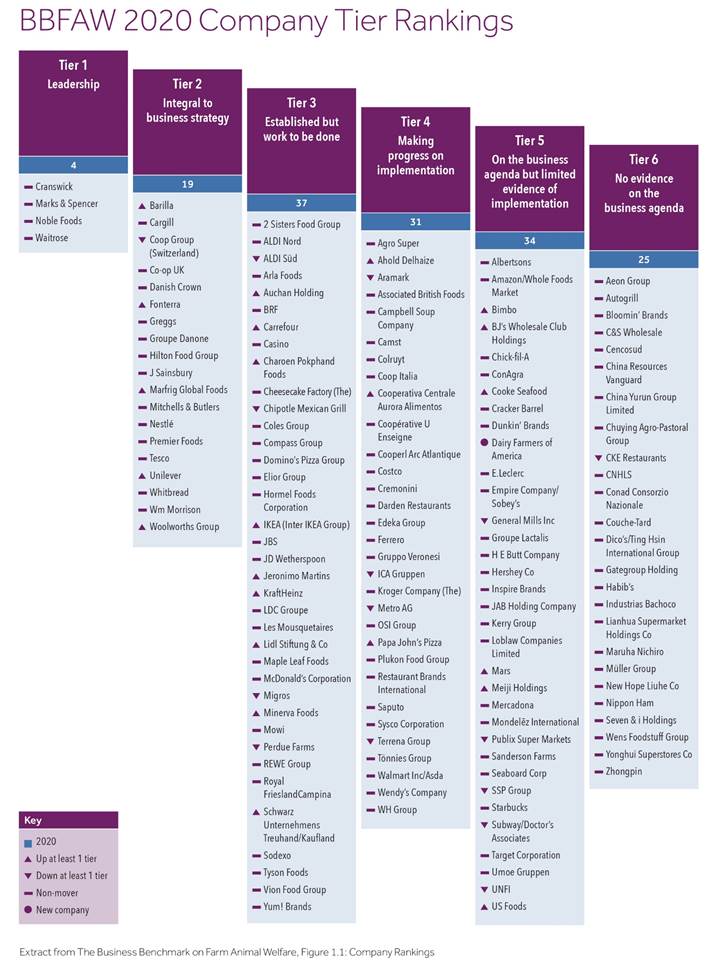

The BBFAW is the leading global measure of policy commitment, performance, and disclosure on animal welfare in food companies and is supported by Compassion in World Farming and World Animal Protection.
The 2020 Benchmark analysed 150 global food companies, made up of 63 Producers & Manufacturers with combined retail revenues of US$500 billion, 52 Retailers & Wholesalers and 35 Restaurants & Bars. Producers Cranswick and Noble Foods retained their Tier 1 ranking in the Benchmark, alongside retailers Waitrose and Marks & Spencer. The Restaurants & Bars sector has yet to break into Tier 1 of the Benchmark.
Speaking about their top tier ranking in the BBFAW, Marija Rompani, Director of Ethics & Sustainability at Waitrose said:
"Our business has been built on high ethical standards and we're extremely proud to have maintained our Tier 1 Status in the Business Benchmark. Accolades such as this reflect the hard work of our agriculture managers, our suppliers but most importantly our farmers, who continue to lead the industry through their exceptional work."
However, more than a third (39%) of the 150 companies covered by the BBFAW remain in the bottom two tiers, including 23 producers and manufacturers, offering little or no information on their approach to farm animal welfare. In fact, 31 global food companies remain without an overarching farm animal welfare policy.
Nicky Amos, Executive Director of the Business Benchmark on Farm Animal Welfare, said: “The 2020 findings show how BBFAW is driving corporate action on farm animal welfare, with around two-thirds of companies actively managing the business risks and opportunities associated with farm animal welfare, and 79% of companies having committed to improvement objectives and targets linked to farm animal welfare. The progress made by companies on managing farm animal welfare since the BBFAW’s inception in 2012 is remarkable and should be applauded. However, as BBFAW enters its tenth year, our expectation is that companies need to demonstrate how their management commitments are translating into improved welfare impacts for animals on the ground.”
As well as being the highest scoring sub-sector, food producers and manufacturers are also now the most represented sub-sector in Tiers 1 and 2 of the Benchmark, with twelve companies – Barilla, Cargill, Cranswick, Danish Crown, Groupe Danone, Fonterra, Hilton Food Group, Marfrig Global Foods, Nestlé, Noble Foods, Premier Foods and Unilever – showing leadership on farm animal welfare. These companies represent all geographic regions (Asia Pacific, Europe, Latin America, North America and UK) covered by the Benchmark.
Overall, a total of 23 companies improved their score by at least one tier between 2019 and 2020. Of these 23 food businesses, 13 were producers and manufacturers compared to nine retailers and wholesalers, and just one company in the restaurants and bars sub-sector. A total of 15 companies dropped at least one tier and this included producers and manufacturers General Mills, Perdue Farms and Terrena Group.
The largest improvements within the producers and manufacturers sector (indeed across all three sectors in the Benchmark) were made by two Brazilian companies, Marfrig Global Foods and Minerva Foods, which both climbed two tiers. Minerva Foods moved up from Tier 5 to Tier 3 while Marfrig Global Foods rose from Tier 4 to Tier 2. The improved ranking for Marfrig Global Foods can be attributed to the publication of a formalised animal welfare policy as well as a 2020 Animal Welfare Report, clearly outlining the company’s operations and practices around animal rearing, its priorities and commitments for the continuous improvement of farm animal welfare, as well as its systems and processes in place to implement and monitor these.
Unilever rose one tier in 2020 to Tier 2 partly due to notable improvements in the Management and Commitment section as a result of publication of new statements on animal subjects to genetic engineering or cloning, and the avoidance of antibiotics for prophylactic use.
Vanessa King, Sustainable Sourcing Manager, Unilever commented: “Improving animal welfare has been a commitment at Unilever for many years; it aligns with our values and is important to our consumers. We welcome the transparency that the Business Benchmark on Animal Welfare brings to investors and we are pleased to have moved back up to Tier 2 in the index this year. We will continue to work together with our supply chain partners and our peers to bring industry change.”
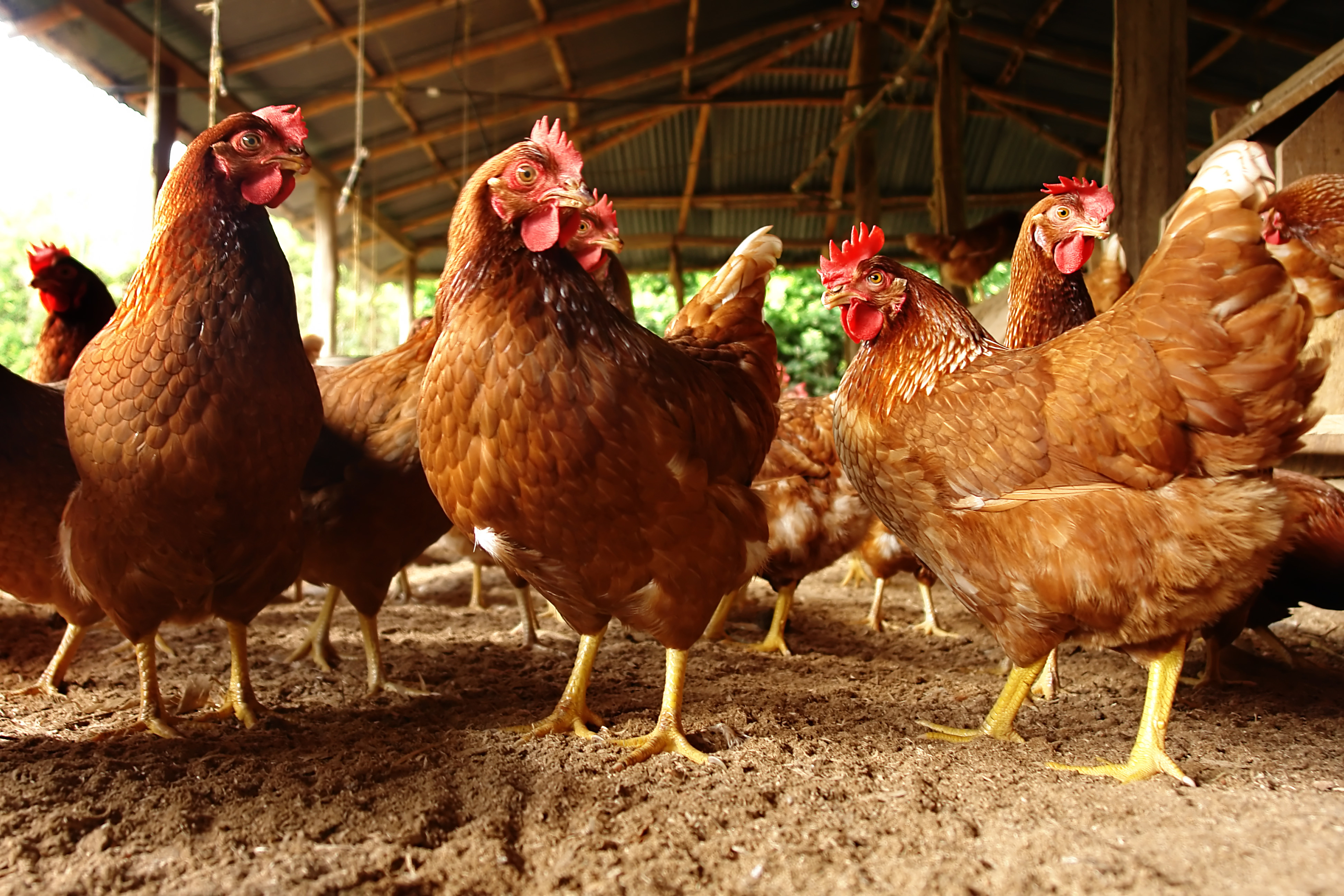

Premier Foods’s BBFAW Benchmark score has improved significantly since 2019 enabling the producer to retain its Tier 2 ranking. This can be attributed to improved scores across the Management Commitment, Governance and Management, and Performance Reporting and Impact sections of the assessment. As an example, Premier Foods reports on the proportions of animals in its supply chain that are free from close confinement, free from routine mutilations and that are subject to pre-slaughter stunning.
Mark Hughes, Procurement and Central Operations Director said: “At Premier Foods, we continuously advocate for greater awareness of animal welfare issues across our supply chain, and regularly engage with our suppliers to understand their practices and challenges. We seek to improve the lives of farm animals by increasing the visibility and extending the development of good animal welfare practices across our whole supply chain, including within our primary producers and indirect users of animal-derived ingredients. We were delighted to see this work recognized through a Tier 2 ranking by BBFAW in 2019, and again in 2020, providing all our stakeholders with the independent verification needed to build confidence in our commitments and practices.”
Fonterra Co-operative Group joined Premier Foods in Tier 2, largely due to improved scoring in the Governance and Management and the Leadership and Innovation sections. As an example, Fonterra has published targets to reduce Global Somatic Cell Count (SCC) by 2021 and has provided evidence of involvement in research and development activities, including on pasture enrichment and milk fingerprinting (identifying stress indicators in milk).
Barilla’s BBFAW Benchmark score has improved significantly since 2019. This has resulted in the company moving up a tier to Tier 2 which can mostly be attributed to improvement in scores in the Governance and Management section, for example, for more inclusive disclosure on contracts and audits of suppliers.
Leonardo Mirone, Purchasing Director, Barilla said: “We are aware that food is not only what we eat: it reflects on people’s quality of life, on the wellbeing of animals, and the planet. Our ‘Good for You, Good for the Planet’, our only one way of doing business, guides us constantly and allows us to undertake new paths quickly and decisively. We have worked on the supply chains of our most important raw materials to make a positive contribution to farmers, communities and the planet. We ensure that all our suppliers of raw materials of animal origin comply with high standards, in compliance with the Barilla Guidelines on Animal Welfare.”
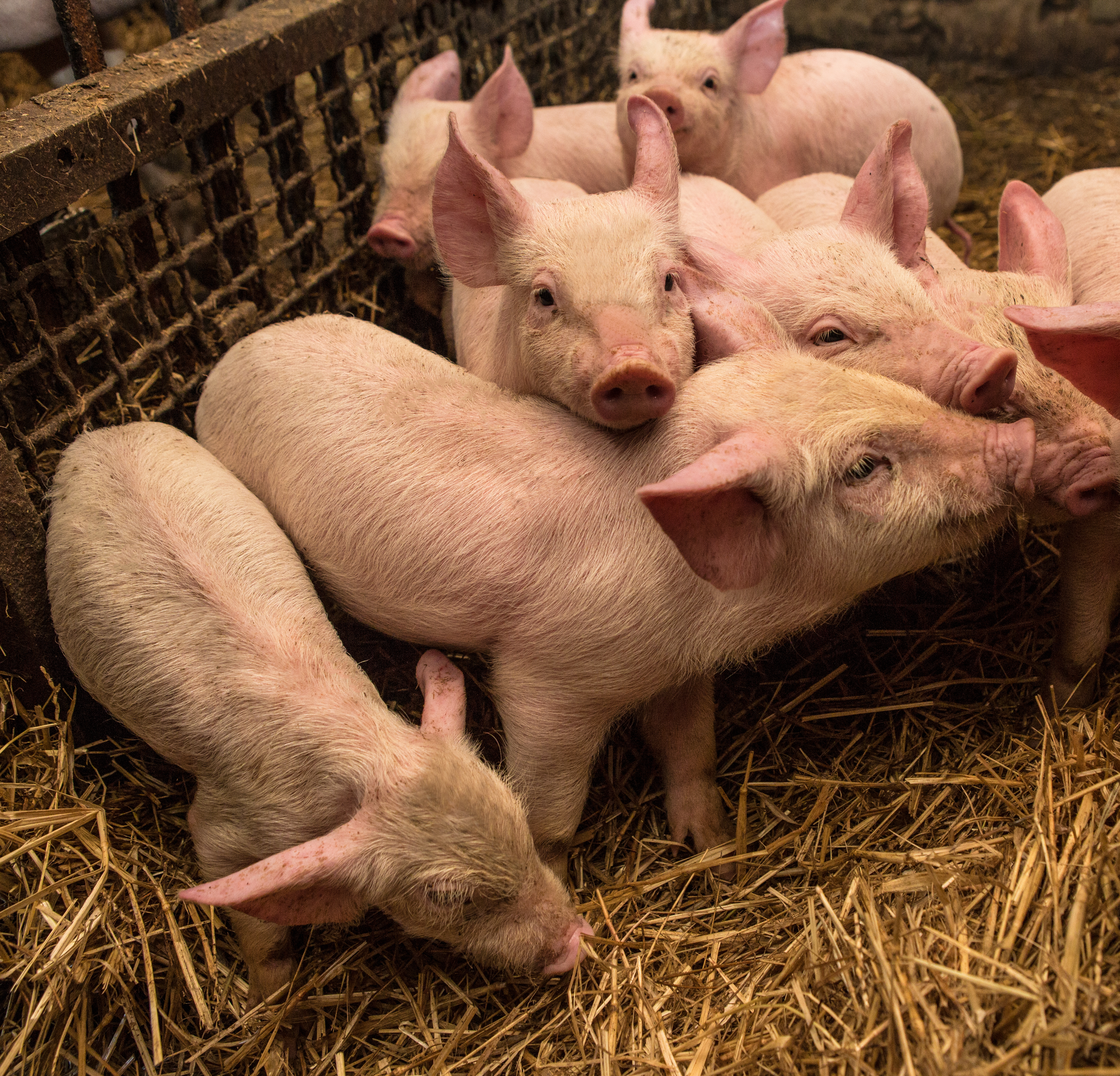

Thailand’s Charoen Pokphand Foods (CPF) improved its ranking from Tier 4 in 2019 to Tier 3 in 2020. This improvement is thanks to better scores in all sections. As an example of the company’s performance reporting, CPF reports on the proportion of animals that is free from routine mutilations, welfare outcome measures, proportion of laying hens in cage-free operations and the proportion of pigs free from tail docking, although this reporting is partial and limited to certain geographies and products. CPF has reported fully on the proportion of animals subject to pre-slaughter stunning, covering all relevant geographies, species and products.
KraftHeinz has risen a tier to Tier 3 which can be attributed to improvement in scores in the Governance and Management section, namely its reporting on assigned management responsibilities for animal welfare, and its reporting on progress against its objectives and targets.
On a regional basis, the 2020 Benchmark reveals that many of the strongest performing companies, including all four Tier 1 businesses, are UK based and no UK companies dropped a tier in 2020. However, momentum is building in Latin America and Asia Pacific, regions that include some of the biggest names in global meat production. Analysis here shows noteworthy changes for producer companies in Latin America, whose overall average score rose from 29% in 2019 to 40% in 2020.
In Asia Pacific, producers in the region saw year-on-year scores improve from 21% to 27% in the Management Commitment section and from 14% to 18% in the Governance and Management section. However, it is worth noting that this rise is from a very low base, and the average overall score for these companies increased from 12% to 16% in 2020.
The BBFAW has also announced that in 2021 – the tenth annual Benchmark cycle - it welcomes Four Paws, the global animal welfare organisation for animals under direct human influence, as a supporting partner. Four Paws will take over the role of co-sponsor from World Animal Protection who, alongside Compassion in World Farming, has steered the BBFAW since its inception in 2012. The BBFAW is extremely grateful to World Animal Protection for its vision, dedication, technical expertise and financial support over the past 10 years. Four Paws and BBFAW founding partner, Compassion in World Farming, will together play an instrumental role in providing the BBFAW programme with technical expertise, guidance, funding and practical resources as the programme enters its second decade.
Philip Lymbery, Global CEO at Compassion in World Farming, said: “This is the ninth annual BBFAW report and I’d like to thank our co-sponsors, World Animal Protection for sharing the journey with us since 2012, during which time we have seen extraordinary company progress.
“The current pandemic has been deeply challenging for everyone, particularly for the hospitality sector, and at the same time, has underlined the need for progressive change toward healthier, more resilient animal-welfare friendly food systems. The need to convert effective policies into practice has never been more urgent.
“As the 2020 Benchmark demonstrates, giving greater weight to the implementation of progressive practices has become a key corporate performance indicator on animal welfare and thereby health, which will remain important going forward.”









